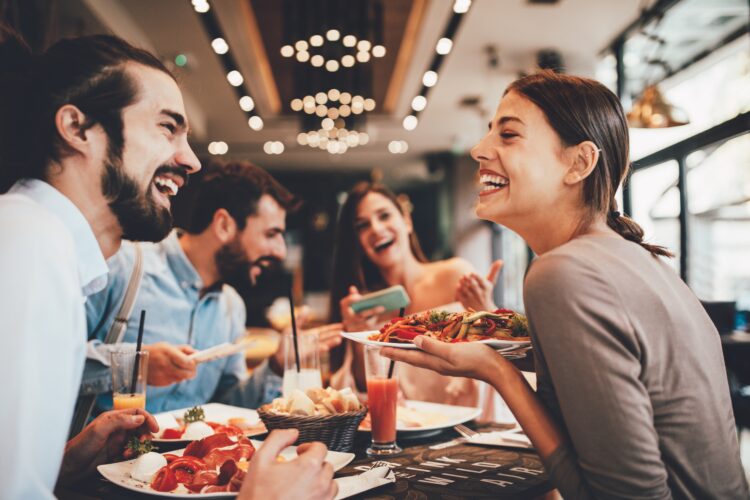Have you ever wondered how your subconscious affects what and how you eat? Psychology can often explain why we are constantly fighting cravings, feeling guilty about certain foods, eating emotionally, or even struggling with control around food. This is referred to as behavioral nutrition. Here, you’ll learn some pointers from a Registered Dietitian on how to unpack your behaviors for a healthier life.
Why Your Behaviors Affect Your Cravings
You’d be surprised how much your thoughts have an effect on your cravings. To give you an idea of how this works, imagine what happens when you tell a child they can’t have something. What happens? Most often, they’ll want it even more! Well, our brains still work that way as adults. So, when we say to ourselves, “I’m never going to have sweets again,” that statement can make us crave sweets even more than we usually would.
How do we offset this? Instead of warding off a certain food or food group FOREVER, allow yourself to enjoy it in moderation and really savor that moment. You may find that instead of “slipping up” and eating a whole box of cookies, you’ll enjoy a smaller portion and be able to move on without a second thought.
Removing the Guilt Around Food
Have you ever eaten something or so much that you feel guilty afterward? You’re not alone. In fact, most of us have!
Remove the guilt around food by allowing yourself to enjoy some of your favorites from time to time by sharing them with loved ones. Instead focusing on the food alone, focus on enjoying the moment and spending quality time with others in a positive environment.
Digging Into Emotional Eating
Emotional eating is when you use food to cope with your emotions. It can also mean you may not be in tune with your body’s hunger and fullness cues and sometimes eat more than you want to. Unfortunately, emotional eating only gives us a temporary feeling of satisfaction when we need to patch up deep-set feelings like stress, sadness, or anxiety.
The first step to stopping emotional eating is to be aware that it’s happening. If you have sudden, urgent hunger, specific cravings, or feel guilty after eating, there’s a good chance that you’re experiencing emotional hunger, not physical hunger. To deal with this, try taking a mindful moment and really asking yourself what you really need. Most of the time, it won’t be a snack.
Stop Letting Food Control You

If you feel like food is calling your name every time you go into the kitchen or go to a gathering, you might be experiencing a loss of control over food. Take control of food by reminding yourself that it is just that: food. It’s not “good” or “bad,” it is just something that your body needs to fuel up.
If you’ve experienced cravings, guilt, emotional eating, or loss of control around food, your behaviors might have a stronger effect on your health than you think. Try some of these Dietitian-approved tips on behavioral nutrition to hack your brain and improve your wellness.
